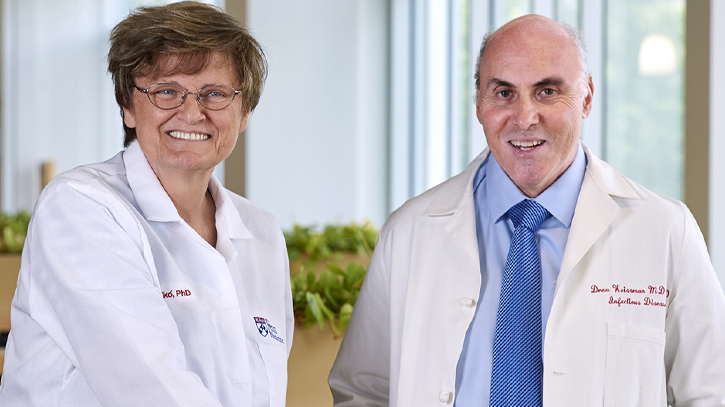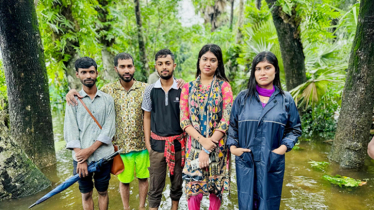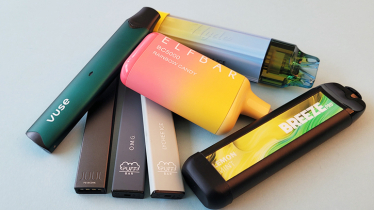
Hungarian scientist Katalin Kariko and U.S. scientist Drew Weissman. Photo: Pentoday
Hungarian scientist Katalin Kariko and U.S. colleague Drew Weissman, who met in line for a photocopier before making mRNA molecule discoveries that paved the way for COVID-19 vaccines, won the 2023 Nobel Prize for Medicine on Monday (2 October).
The Swedish award-giving body said in the latest accolade for the pair that the laureates contributed to the unprecedented rate of vaccine development during one of the greatest threats to human health in modern times.
The prize, among the most prestigious in the scientific world, was selected by the Nobel Assembly of Sweden's Karolinska Institute Medical University and comes with 11 million Swedish crowns (about $1 million) to share between them.
Kariko, a former senior vice president and head of RNA protein replacement at German biotech firm BioNTech, is a professor at the University of Szeged in Hungary and adjunct professor at the University of Pennsylvania (UPenn).
‘We are not working for any kind of reward’, Kariko, who struggled for years to find grants for her research, said in remarks alongside Weissman at UPenn's Philadelphia campus, a few hours after she was awoken by the call from Stockholm. ‘The importance was to have a product which is helpful.’
Co-winner Weissman, a professor in vaccine research also at UPenn, said it was a ‘lifetime dream’ to win and recalled working intensely with Kariko for more than 20 years, including middle-of-the-night emails as they both suffered disturbed sleep.
In 2005, Kariko and Weissman developed so-called nucleoside base modifications, which stop the immune system from launching an inflammatory attack against lab-made mRNA, previously seen as a major hurdle against any therapeutic use of the technology.
‘We couldn't get people to notice RNA as something interesting’, Weissman said on Monday. ‘Pretty much everybody gave up on it.’
The medicine prize kicks off this year's Nobel awards with the remaining five to be unveiled in coming days.
The prizes, first handed out in 1901, were created by Swedish dynamite inventor and wealthy businessman Alfred Nobel.
Last year's medicine prize went to Swede Svante Paabo for sequencing the genome of the Neanderthal and other past winners include Alexander Fleming, who shared the 1945 prize for the discovery of penicillin.
‘If you don't enjoy what you are doing then you shouldn't do it’, Kariko said on Monday. ‘If you want to be rich, I don't know the answer for that. But if you would like to solve problems, then science is for you.’
Messenger/Alamin








